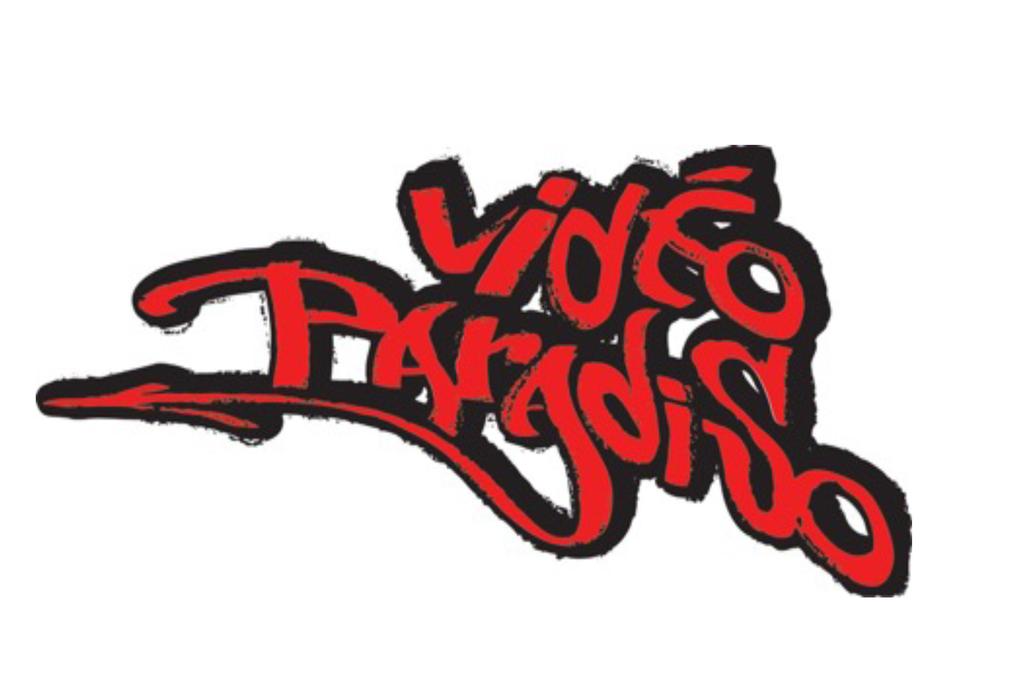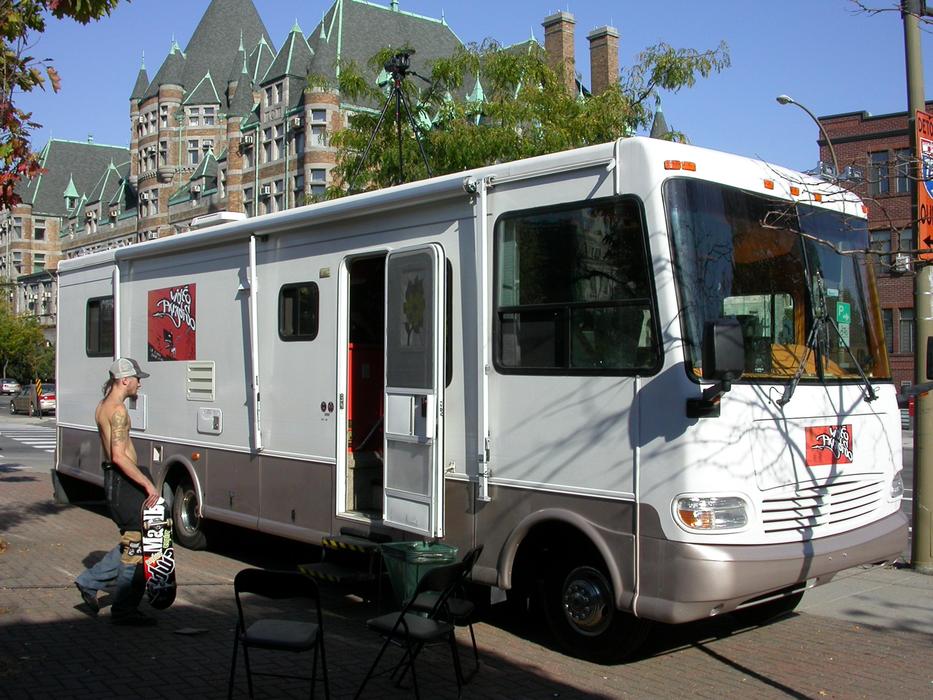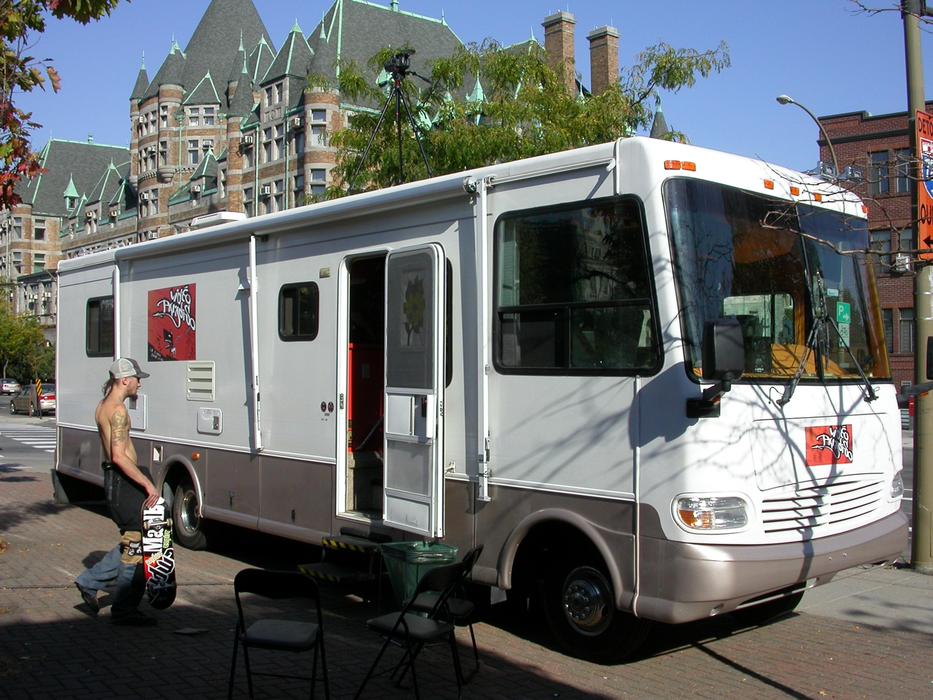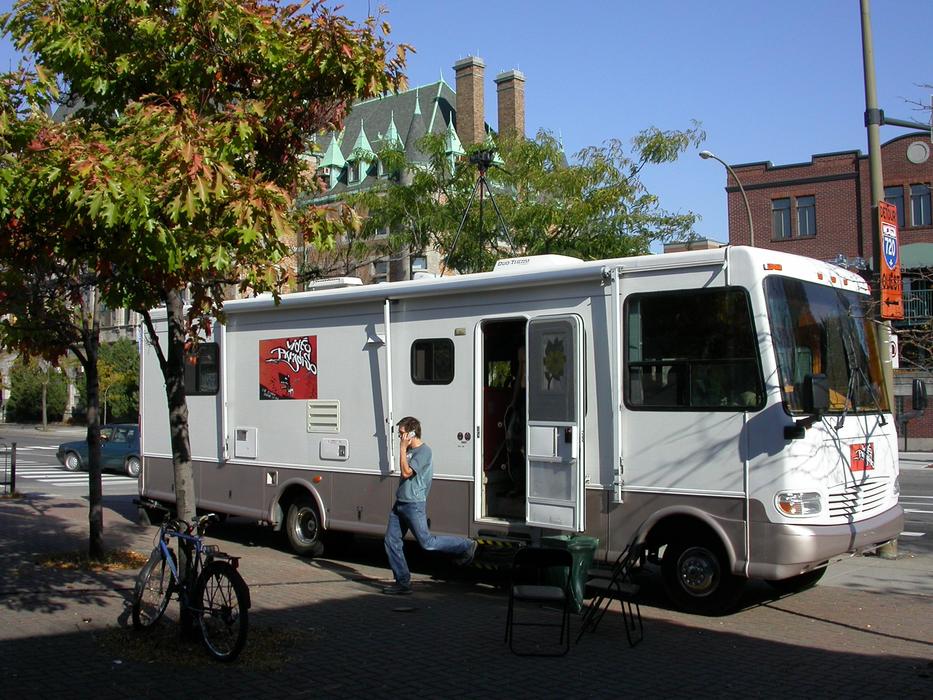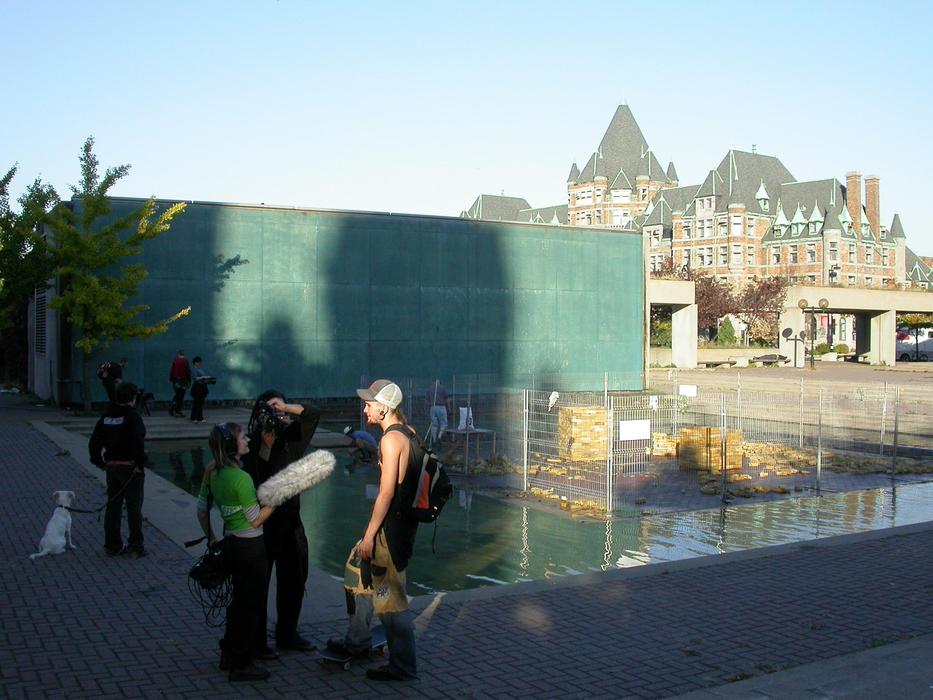Programming
Vidéo Paradiso
Inspired by Pops caravan that nourishes the heart as well as the body, Video Paradiso wants to feed the spirit of the street youth of the big cities as well as the young people of the native communities.
At Viger Square
Le Vidéo Paradiso was created for these young people. To offer them a place to dream without consumption, a place to come together with like-minded people, a place to express themselves, to learn and to value themselves. A place to "hang on", a way to reintegrate, in their own way.
A unique and innovative project that reaches out to the places where young people like to gather, the Vidéo Paradiso consists of mobile units equipped with everything they need to create: a small recording studio, four computers and their editing software, a monitor for viewing films, a projector and screen for public screenings, a coffee machine and the indispensable popcorn machine!
Vidéo Paradiso gives marginalized young people the opportunity to express themselves through video and musical productions. While encouraging the emergence of new talent, it also facilitates exchanges and communication between young people, and contributes to their openness to the world. It gives them the opportunity to make themselves known, to get out of their usual environment and to shine in their community and beyond.
"Learning by doing" is the basis of Le Vidéo Paradiso's pedagogy. Young creators receive hands-on training. These range from scriptwriting and directing to the more technical aspects of camera work, sound recording and editing. These apprenticeships are supervised by young professional filmmakers. The result: short documentaries of around five minutes or musical creations. Equipped in this way, the Vidéo Paradiso travels through the heart of Quebec City and Montreal, offering street kids the chance to produce video documents or musical recordings, alone or in groups.
_
Vidéo Paradiso was conceived by Manon Barbeau while she was creating L'Armée de l'ombre, a film about street kids. Ten Quebec City street kids collaborated on the script and direction of the Gémeaux award-winning documentary. Since its inception in 2004, the Vidéo Paradiso caravan has travelled to Viger Square, Parc-Extension, Saint-Michel and Place d'Youville in Quebec City. In 2003, Manon Barbeau founded Vidéo Paradiso, a mobile urban audiovisual studio to help street kids express themselves through film. That same year, following a film scripted with a group of young Atikamekws from Wemotaci, she decided to create a mobile studio for First Nations youth: Wapikoni mobile.
